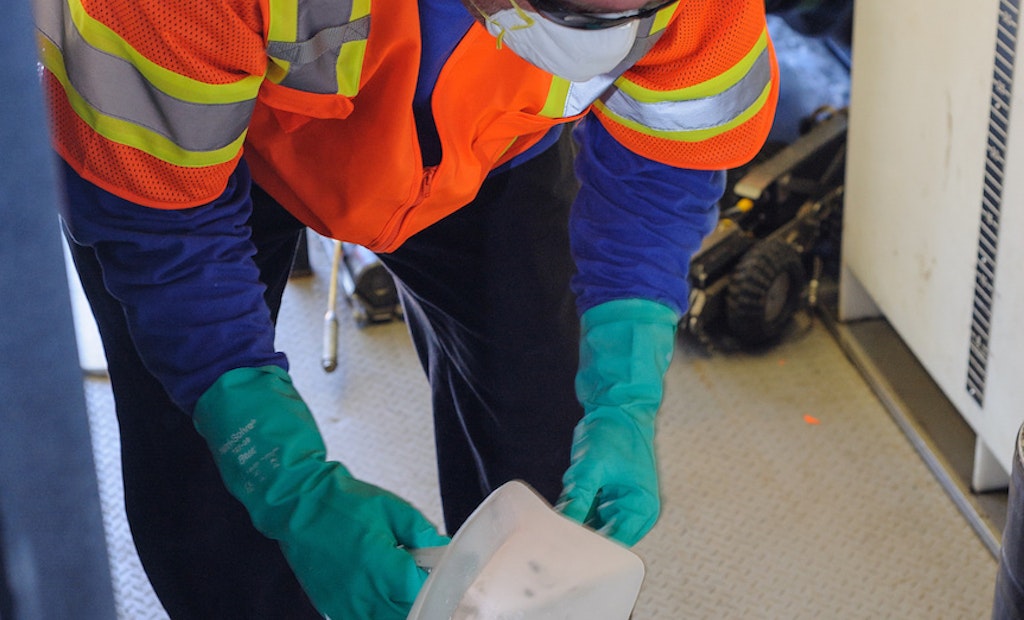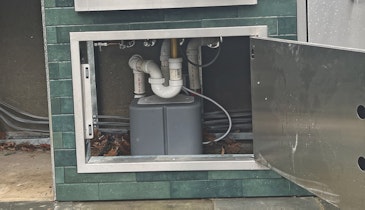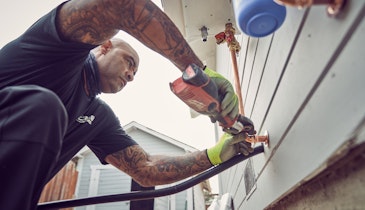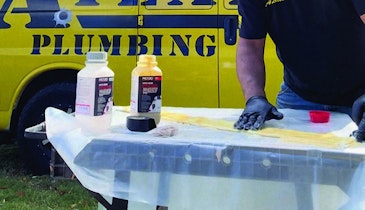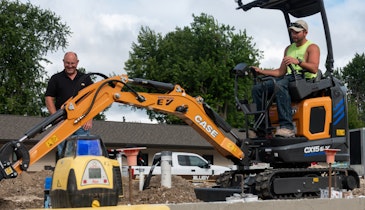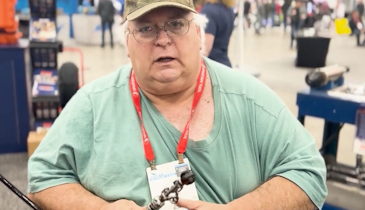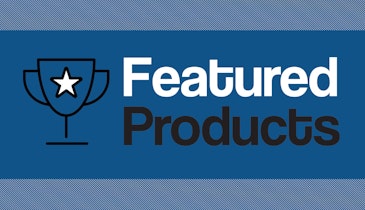With the many strange and gross things that end up down the toilet, drain cleaning isn’t a job for the squeamish. It’s also not a job for the careless. Drain cleaners and plumbers are exposed to a variety of dangerous pathogens and substances in the course of their work. Preventing contact with these hazards, and maintaining a firm barrier between “clean” spaces and “dirty” spaces, is vital to their health. Since June is National Safety Month, here is a reminder of the dangers lurking in raw sewage and how you should protect yourself.
What are the dangers?
Raw sewage is a major risk, as it can carry dozens of life-threatening pathogens including tetanus, E. Coli, hepatitis A and B, and typhoid fever. On roofs and in basements and crawl spaces, plumbers can also be exposed to infections from bird or rodent droppings like histoplasmosis or hantavirus, which can cause hemorrhagic fever or kidney failure.
Plumbers are also commonly exposed to hazardous substances like lead, asbestos, mold and sulfur dioxide. Some mold can cause immediate symptoms in those who are exposed, including nasal stuffiness, coughing or wheezing, or skin or eye irritation. Long-term exposure to mold can cause more serious issues like upper respiratory tract illnesses or development of asthma.
Preventing contact
Fortunately, there are many steps you can take to protect yourself and limit your exposure to these pathogens and toxins and keep dirt away from “clean” spaces. The first step is to wear personal protective equipment:
- Gloves
- Coveralls
- Rubber boots
- Goggles
- Face-mask or splash-shield
All these pieces of equipment have one thing in common: They prevent pathogens from contacting the skin. They should all be waterproof or liquid-repellant to prevent sewage from reaching your skin and, most important, making contact with any cuts or abrasions. These pieces of equipment also protect you from injury. Boots protect your feet from punctures; gloves protect you from twisting snake cables. Goggles and splash-shields prevent dust, liquids and debris from getting directly into sensitive areas like your mouth, eyes and nose. If you’ll be in an area with lots of dust, a respirator is also important. Depending on the type of respirator you choose, it can protect you from airborne toxins like mold or aerated pathogens.
Staying safe
But wearing the right equipment is only half the battle when protecting yourself from biohazards and toxic substances. If you’re wearing the right gloves but then wipe sweat off your forehead with them still on your hands, you’re defeating the purpose. The other half of protecting yourself is preventing those hazards from transferring to your skin or other “clean” surfaces. Following one simple rule protects you from most cross-contamination: Wash your hands; wash your hands; wash your hands. Wash your hands with soap and water before eating, drinking, smoking, using the bathroom, touching your skin or after any contact with contaminants.
Scrubbing shouldn’t be limited to your hands. If sewage or animal droppings come in contact with any part of your skin, wash the area thoroughly with soap and water. If contaminated water or dust gets in your eyes, flush thoroughly with clean water.
Protecting others
The final piece of preventing job-related disease is keeping contaminated items away from clean spaces. If you wear dirty work boots home you’re exposing yourself and your family to everything on them. Work gear should be left at work and cleaned separately. If you drive your work truck home, change out of contaminated clothing and shoes before getting in the driver’s seat.
All these rules about what you can and can’t do might seem overwhelming and even excessive. Many of these diseases aren’t common in the U.S., and those who do catch them often get them overseas. But they’re rare exactly because our wastewater workers, plumbers and drain cleaners work hard to protect their communities from all the pathogens and toxins they’re exposed to every day.
In the end, preventing disease comes down to a simple idea: There are “dirty” areas and “clean” areas. If anything needs to go from “dirty” to “clean,” it needs to be disinfected. That means you, your clothes, your equipment and your truck. And, if you’re not sure, clean it anyway; it’s better to be safe than sick.
